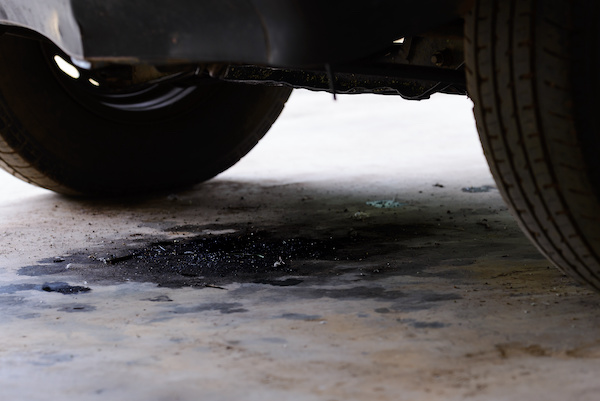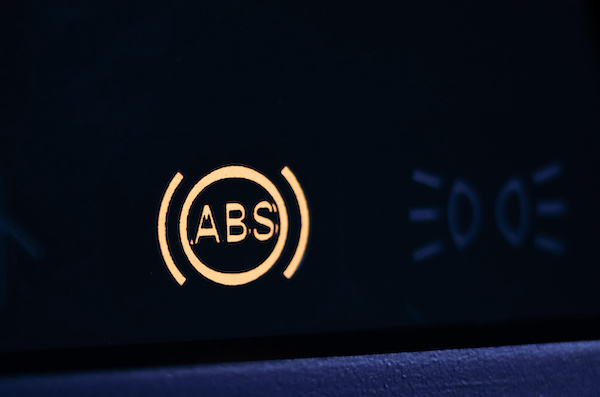Posted on 2/27/2023
.jpeg)
In simple terms, no, we do not recommend driving with the engine oil light on. When this dashboard light comes up, it's a tell-tale sign that something is very wrong from within your vehicle. When the oil warning light comes on, it generally means that your vehicle has low oil pressure. The reduction in oil pressure could result from a few things: you are low on oil, your oil is heavily contaminated, or you have an oil leak. Thankfully, you can come close to a conclusion by simply checking your oil. To check your oil, follow the following steps: With your car parked on an even surface, pop your hood and find the oil dipstick (usually yellow). Remove the dipstick and clean it off using a rag. Put the dipstick back in and pull it out again to get a more accurate reading. If the oil on the end of the dipstick is at or below the indicated marks, then it's time to bring your car into our shop for an oil change. Even though your vehicle doesn't burn through ... read more
Posted on 1/31/2023

One major component in your vehicle that is often overlooked is the fuel pump. This fuel system plays a pivotal role in your vehicle’s performance and can cause major issues if it stops working. If your engine doesn’t get the right amount of clean fuel, your car can suffer. As you can probably guess, the fuel pump is responsible for bringing fuel from the tank to the engine. Fuel needs to flow in the engine at the right pressure and timing. To ensure your fuel delivery is satisfactory, you should service your fuel system regularly. Moreover, you should avoid driving with too low of a gas tank. Running your fuel tank dry can cause excess wear and tear on the fuel pump. Top Warning Signs of a Faulty Fuel Pump Starting or Stalling - First off, your car may stall or have trouble starting altogether with a troubled fuel pump. Buzzing or Humming - Another symptom that customers will say is that they hear a humming sound com ... read more
Posted on 12/30/2022

You may notice a pool underneath your car when pulling out of the driver, which means you have a fluid leak. It is crucial to know the fluid leaks your vehicle can have so you can fix them immediately. The following are different types of fluid leaks: Coolant Leak The color of the fluid leak is often a hint as to the type of fluid leak in a car. If you have a green or orange puddle, then it is a coolant leak. A coolant leak is the result of a crack in the car's cooling system. Therefore, you will not have enough coolant meaning some car parts will start overheating and malfunctioning. It is best to check for coolant leaks when the car is hot as the puddle will be visibly bubbling. Oil Leak An oil leak is the most common type of fluid leak. You know you have an oil leak when you see a black puddle underneath your car. Oil leaks can be small and hard to find, but they are often due to a failed gasket. You can replace damaged gaskets and should do so immediately if you notice the ... read more
Posted on 11/30/2022

With November coming to an end, it is important that you set aside time to care for your car. Driving in the winter can be stressful, especially with low visibility, icy conditions, and snow storms. Here are some of our top tips for safer winter drives: Check your tire pressure. The air in your tires is likely to contract. To avoid driving with underinflated tires, top them off to meet manufacturer requirements. Inspect tire treads and make sure they have good traction. You can do this using the penny test method. Swap out your tires for winter tires. They tend to have deeper tread with a pattern that is fit for driving in snowy and icy conditions. Test your car battery. Vehicle batteries are likely to die out or drain in the winter. With colder temperatures, it makes it harder to start your car. Carry jumper cables with you. Replace your wiper blades. Make sure they are winterproof and able to clear off rain and snow. Top off on wiper fluid. The solution should have a low ... read more
Posted on 10/28/2022

Your vehicle features multiple sensors that help notify if there's an issue with parts as you drive. One of the sensor systems is the anti-lock braking system (ABS). The system monitors your car's wheels to ensure they're all rotating approximately at the same speed. ABS Warning Light: What It Means While driving, the ABS system will monitor your wheels' rotation speed. Your car's computer monitors and sends signals from all the four wheels and the brake pedal location. The ABS warning light turns on immediately when the computer senses unusual signals or gets no signal from the sensors. It notifies you while in transit that there's a problem with your tires. Additionally, there're other malfunctions, including a damaged fuse and inadequate braking fluid, which can turn on the ABS warning light. Depending on your car's model and brand, the ABS warning light can turn on permanently at once or blink several times before turning on permanently. What To ... read more